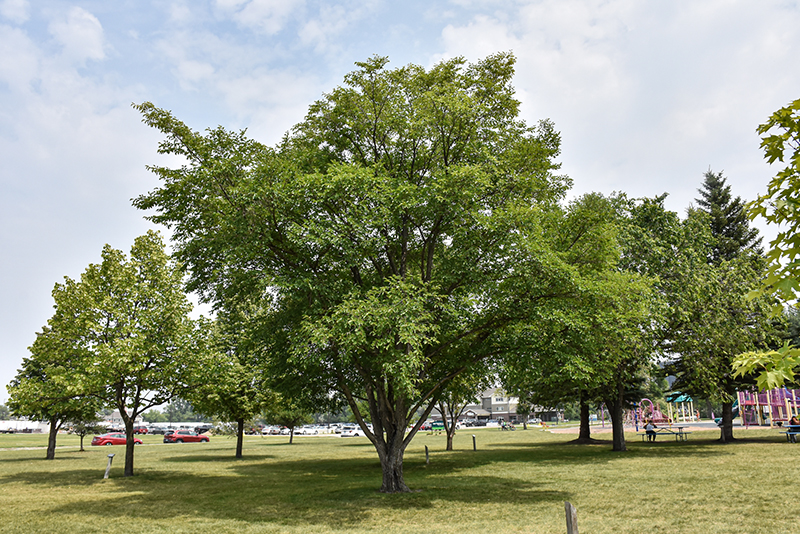Northern Empress® Japanese Elm
Ulmus davidiana 'Burgundy Glow'
Height: 28 feet
Spread: 24 feet
Sunlight:
![]()
Hardiness Zone: 3a
Other Names: Ulmus davidiana var. japonica
Description:
A hardy, small to medium sized tree with a rounded crown and open branching; rich fall color; notably smaller than American elm, makes a great lawn tree for home landscapes; resistant to black spot, elm leaf beetles, and Dutch elm disease
Autumn Enthusiasm
Fall is for planting! Did you know that fall is the best time to plant your deciduous trees and shrubs? Be the envy of all your neighbors with striking shades of reds, oranges, and purples. Plant something breathtaking today!
Ornamental Features
Northern Empress® Japanese Elm has rich green deciduous foliage on a tree with an upright spreading habit of growth. The serrated pointy leaves turn outstanding shades of orange, peach and burgundy in the fall.
Landscape Attributes
Northern Empress® Japanese Elm is a deciduous tree with an upright spreading habit of growth. Its relatively fine texture sets it apart from other landscape plants with less refined foliage.
This is a relatively low maintenance tree, and is best pruned in late winter once the threat of extreme cold has passed. It has no significant negative characteristics.
Northern Empress® Japanese Elm is recommended for the following landscape applications;
- Accent
- Shade
Planting & Growing
Northern Empress® Japanese Elm will grow to be about 28 feet tall at maturity, with a spread of 24 feet. It has a high canopy with a typical clearance of 6 feet from the ground, and should not be planted underneath power lines. As it matures, the lower branches of this tree can be strategically removed to create a high enough canopy to support unobstructed human traffic underneath. It grows at a medium rate, and under ideal conditions can be expected to live for 70 years or more.
This tree should only be grown in full sunlight. It is very adaptable to both dry and moist locations, and should do just fine under average home landscape conditions. It is not particular as to soil type or pH, and is able to handle environmental salt. It is highly tolerant of urban pollution and will even thrive in inner city environments. This is a selected variety of a species not originally from North America.


